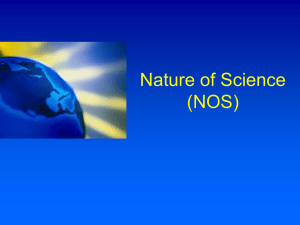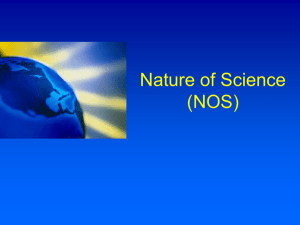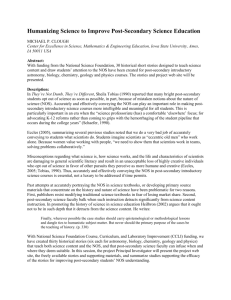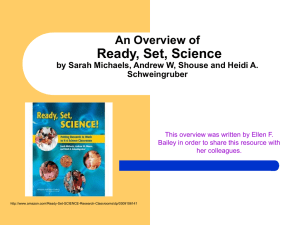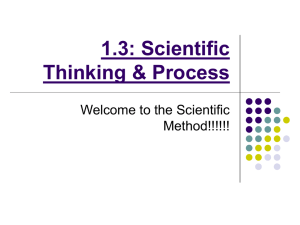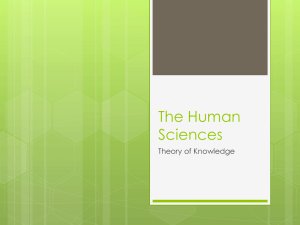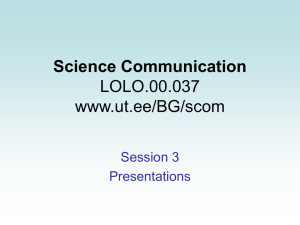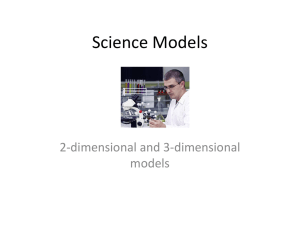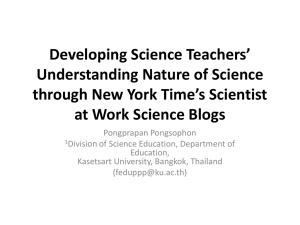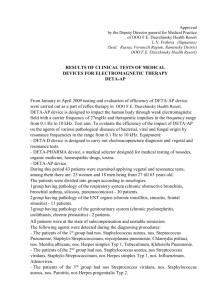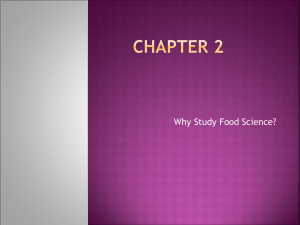Black Box Activity & the Nature of Science
advertisement
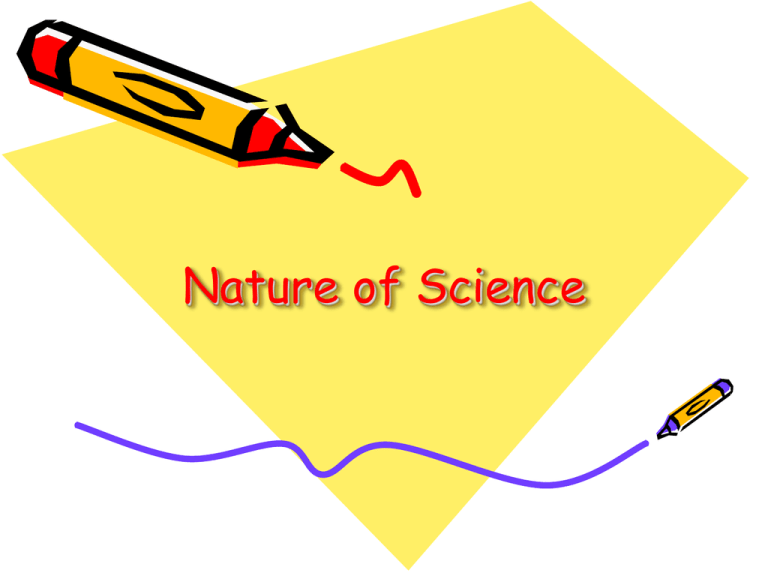
Nature of Science NOS Card Exchange • Step 1: Obtain 8 cards (that are different from one another). • Step 2: Trade cards with classmates in order to amass a better collection of cards. (Your collection improves as the cards more accurately express your views on science.) • Find a partner with similar views and select the 8 “best cards” from the 16 that you have collectively. (Each of you must contribute at least 2 cards.) • Make a group of 4 and select the 8 “best cards.” • Using the remaining cards, write a statement which describes your group’s notion of the Nature of Science. VNOS(c) • What in your view is science? What makes science different from other disciplines of inquiry? • What is an experiment? • Does the development of scientific knowledge require experiments? • After scientists have developed a scientific theory, does the theory every change? • Is there a difference between a scientific theory and a scientific law? • How certain are you about the structure of an atom? What specific evidence do you think scientists used to determine what an atom looks like? • How certain are scientists about their characterization of what a species is? What specific evidence do you think scientists used to determine what a species is? • Does science reflect social and cultural values or is it universal? • Do scientists employ creativity in their investigations? If so where and how? What is the Nature of Science (NOS)? • Science cannot be singularly (and definitively) defined because it is interpreted in different ways by different people. • Methods such as the card sort and NOS surveys encourage students to think specifically about their views on science. • Scientists, science educators & philosophers of science have proposed some consensus views on NOS. • Views on NOS describe how the scientific enterprise operates. Consensus Views on NOS • Empirically-based – Scientific knowledge is based on evidence. • Testable – Scientific ideas can be theoretically falsified through evidentiary tests. • Tentative, yet Reliable – Scientific ideas can change given new data or new interpretations • Developmental – Scientific ideas are often built on earlier ideas. Consensus NOS Views • Creative – Scientists employ creativity in posing questions, collecting data, and interpreting data. (What does this suggest about “The Scientific Method?) • Parsimonious – Given multiple explanations, scientists tend to favor the simplest one that maintains predictive power. • Unified – Scientific ideas are consistent across different disciplines. Consensus NOS Views • Culturally-embedded – Scientists & scientific ideas are influenced by the society from they arise. • Theory/Law Distinction – Scientific theories are robust, empirically supported explanations of natural phenomena. Scientific laws are perceived regularities regarding the natural world. Therefore, theories never become laws. Laws are typically more narrow in focus than theories.
